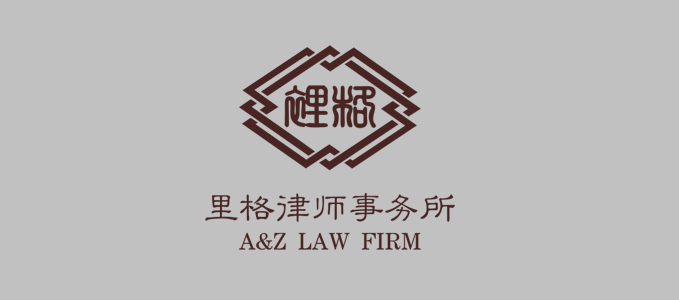China Is The Future II
China Is The Future II

After the success of the first ‘China is the Future’ article, Mr. Zhang is back to answer some of the law-related questions recently asked by readers, and supplement the knowledge held by individuals and businesses in the undertaking of their Chinese endeavours.
1. Is there a general list of items or products prohibited from import into China?
The Chinese government has published 6 lists of “Goods Prohibited from Import” of which 3 lists (the first, second and sixth) are still in effect. Said lists cover certain products of rare wild animals, certain ozone-destroying products, several used mechanical and electrical products and hazardous material products. Furthermore, the Chinese government has also published the “Catalogue of Import Forbidden Solid Wastes”. Any and all products under such catalogues have been prohibited from import into China.
Furthermore, if you want to engage in processing trade in China, you need to pay attention to the Catalogue of Prohibited Commodities in Processing Trade published by the Chinese government.
2. How can a company know what tax rate is to be applied to them when importing into China?
The duty and import VAT rate of imported goods are applied in accordance with the HS code (Harmonization System code) applicable to the specific good. For example, if a company wants to import an aerobridge used for the boarding of passengers in a civil aviation airport, it must consult with a Customs declaration agent to decide the correct HS code in accordance with the Customs Import and Export Tariff of the People's Republic of China, published for this year, which contains the parallel table of HS codes, duty and import VAT rates, and other administration requirements of Customs. For example, if the HS code of this product is 84798991, then the duty and imported VAT could be confirmed in accordance with the parallel table of such Customs Import and Export Tariffs.
3. What types of land rights exist in China?
The types of land rights in China include the State-owned land right and the collective-owned land right. If a foreign company wants to purchase land for construction purposes, it can only obtain the land usage right for a limited period.
In practice, most of the land in China is owned by the State. The period for State-owned land usage right for industry, storage or comprehensive use is 50 years, and the period of State-owned land usage rights for commercial, travel, and entertainment use is 40 years.
A collective-owned land usage right cannot be transferred in the open market. It can only be contributed to a joint venture or a Sino-foreign cooperative enterprise as capital or a cooperative condition.
4. Is it possible to take a Chinese dispute to Court in a foreign Country?
This depends on the article concerning dispute resolution under the contract executed by both parties. If a contract involving foreign parties has agreed that the disputes under said contract shall be solved by a Court in a foreign country which has connecting factors with the contract (such as the place of performance or the place of execution), then the disputes under the contract could be submitted to the Court in a foreign country.
It should be noted that: although you could submit the dispute to a foreign Court, if the foreign country does not have a judicial assistance treaty with China, there is a risk that the sentence of the dispute might not be recognized and enforced by the People’s Court of China.
5. Under what circumstances can a Chinese company declare bankruptcy?
According to Article 2 of the Enterprise Bankruptcy Law of the PRC and Article 1 of Provisions of the Supreme People's Court on Certain Issues Relating to the Application of the Enterprise Bankruptcy Law of the PRC (I), should a debtor be unable to pay off due debt, and said debtor falls under any of the following circumstances, the debtor’s debts may be liquidated in bankruptcy proceedings at the Court where the debtor resides:
i. Where its assets are not sufficient to pay off all its debts; and
ii. Where it obviously lacks solvency.
6. In which Chinese province would it be advised to register a company for tax purposes?
Except for tax preference policies published by the central government of China, each local government (not only provincial governments but also local city and county governments) in China also provides some preferential policies applicable to foreign investment enterprises. In practice, there are no rankings for the tax preference policies in all of China due to the applicable condition of policies varying. In our opinion, you should choose the address of your investment enterprise after comprehensive consideration and comparison of all factors which will affect the operation and profit of your enterprise, such as financial preference policies, fundamental infrastructures, and legal status.
7. What is a foreign company to do if a Chinese manufacturer, distributor, partner or associate breaks a contract?
If a Chinese manufacturer, distributor, partner or associate breaks a contract, a foreign company could send a company letter to such Chinese party requiring it to correct the breach and compensate losses arising from said breach. However, if the Chinese party refuses to do that which is required or has no answer to the letter, we suggest you consult a local lawyer and send a letter of attorney. If your company still does not receive a positive response from the Chinese party, your company should submit the dispute to the court or arbitration commission which has jurisdiction in accordance with the dispute articles under the agreement or the relevant laws and regulations.
8. How is the Hierarchy Court system structured in China?
The Chinese Court system (except the martial courts) has a four level structure. The highest level is the Supreme People’s Court of China, the second level is the high People’s Court in each province, the third level is the middle People’s Court (which includes the Maritime Court, IP Court, and Railway Transportation Court), and the lowest level court is the Fundamental Court. Each level of court will accept a case in accordance with different standards, such as the amount of subjects and the influence of the case, among others.
9. Is a company at risk of human rights violations if specific sectors are outsourced to Chinese manufacturers or service providers?
Although certain reports show that human rights violations have been committed in a few Chinese factories, the protection of human rights has considerably improved and the Chinese government is closely looking at this, taking measures such as the prohibition of child labour. At present, Chinese factories that comply to international standards usually comply with the protection of human rights too. In any case, a company could also decrease such risks through the establishment of articles relevant to the requirements of human rights protection, as well as make irregular audits to gauge the performance of the above mentioned articles.
10. In the event that a Chinese company declares bankruptcy, which of the creditors will be reimbursed first?
In accordance with the bankruptcy laws and relevant judicial interpretation, the creditors who have the real right for security on the specific property of bankruptcy will be reimbursed by the specific property at first. After the expenses for bankruptcy proceedings are defrayed and debts incurred for the common good of the creditors are repaid, the remaining bankruptcy properties of the enterprise will be liquidated in the following order:
a) The wages, subsidies for medical treatment, injuries and disability, and pensions for the disabled and the families of the deceased which the bankrupt entity owes. The basic old-age insurance premiums and the basic medical insurance premiums which it owes and fails to enter in the employees’ personal accounts, the compensation which should be paid to the employees as prescribed by relevant laws and administrative regulations;
b) The social insurance premiums which the bankrupt entity fails to pay, other than the ones which are specified in the preceding subparagraph, and the taxes which the bankrupt entity fails to pay; and
c) The common bankruptcy claims.
We thank Mr. Zhang for his time and his useful answers. In case you have further legal inquiries, feel free to write them at the bottom of this article, or alternatively, send us an email at mpaulo@a-zlf.com.cn.



